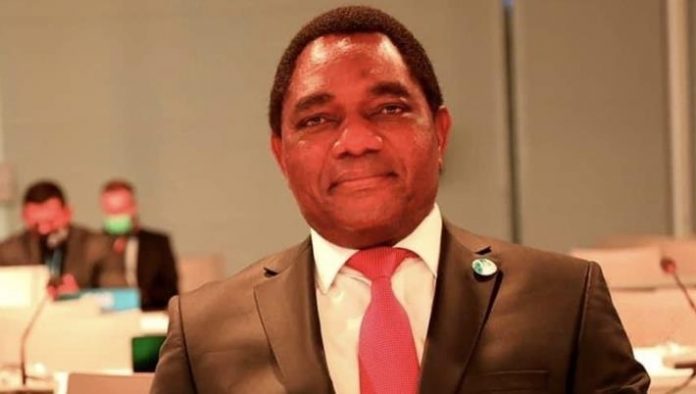Zambians awoke Monday to a social media frenzy over their president going eight months without pay since his victory.
Hakainde Hichilema allegedly forewent salary “in his interest to serve the people,” according to the ministry in charge of awarding presidential wages and allowances.
In response to the claim, Hichilema stated that a salary was not a factor in his decision to run for public office, which he won in August.
“The salary issue is a non-issue because money was not our reason for pursuing public office and not because the government was unable to pay,” he told reporters as he arrived in Livingstone, Zambia’s southernmost city, for a state visit with Rwandan President Paul Kagame.
Hichilema, a 59-year-old economist and businessman with local and international ties, was elected president after serving in the opposition for 15 years, defeating President Edgar Lungu by more than a million votes.
His election came after he campaigned on promises to fix the economy by rooting out corruption and generating jobs for the populace, particularly youths.
He’s been a businessman since he was 26 and has earned vast riches, despite political opponents’ claims that he made his fortune from his involvement in the controversial privatization of state assets in the 1990s.
“It’s only that I’ve been oblivious to it” (presidential salary). “My goal and motivation is to see how we can improve people’s lives,” he stated.
Since his election, Hichilema has been residing in his private residence in New Kasama, a plush residential area of the capital Lusaka miles away from Nkwazi House — the official residence of a Zambian president located within State House grounds.
In 2018, Lungu’s government changed the law on presidential emoluments and allowances, allowing the president to earn a monthly salary of 40,653.25 kwacha and monthly allowances of K10,784.41.
There was no indication, however, that Hichilema had given up any other presidential perks.
Hichilema’s net worth is thought to be in the millions of dollars, and he has previously been claimed to have income from investments in local hotels and the cattle processing sector.
He did not declare his assets publicly prior to the August election since the legislation did not require candidates to do so.
Before the election, certain members of the previous ruling Patriotic Front used Hichilema’s riches as a campaign tactic, accusing him of amassing it through corruption.
Lungu had threatened Hichilema with arrest if he had won the poll, saying the then opposition leader had a lot to explain for how he became wealthy yet the privatization process left the majority in squalor.
Sean Tembo, a leader of the country’s Patriots for Economic Progress party and one of Hichilema’s fierce critics, said it was okay for Hichilema to forfeit his wages because “he had failed to deliver on his campaign promises.”
Hichilema’s decision could still be seen by some as a humane gesture amid a tough economic period for the country but does not entirely set him apart from his predecessor.
In 2016, Lungu took a 50% pay cut and another between 15% and 20% in 2019 to support government austerity measures introduced to meet the country’s debt repayment obligations.
He extended the 2019 decision to his highly paid Cabinet appointees, but Hichilema’s United Party for National Development described the move as deceptive.
Among other African leaders to have previously taken pay cuts in the last two years with percentages varying between 10% to 30% are South African President Cyril Ramaphosa, Ghana’s President Nana Akufo-Addo, Malawi’s President Lazarus Chakwera and Kenya’s President Uhuru Kenyatta.

